-
 Bitcoin
Bitcoin $114400
0.68% -
 Ethereum
Ethereum $3550
2.48% -
 XRP
XRP $3.001
4.99% -
 Tether USDt
Tether USDt $0.9999
0.01% -
 BNB
BNB $757.6
1.46% -
 Solana
Solana $162.9
1.07% -
 USDC
USDC $0.9998
0.00% -
 TRON
TRON $0.3294
0.91% -
 Dogecoin
Dogecoin $0.2015
2.46% -
 Cardano
Cardano $0.7379
2.01% -
 Stellar
Stellar $0.4141
8.83% -
 Hyperliquid
Hyperliquid $37.83
-1.91% -
 Sui
Sui $3.454
0.76% -
 Chainlink
Chainlink $16.62
3.53% -
 Bitcoin Cash
Bitcoin Cash $554.6
2.84% -
 Hedera
Hedera $0.2486
3.91% -
 Ethena USDe
Ethena USDe $1.001
0.00% -
 Avalanche
Avalanche $21.95
3.34% -
 Toncoin
Toncoin $3.563
-2.85% -
 Litecoin
Litecoin $112.7
2.65% -
 UNUS SED LEO
UNUS SED LEO $8.977
0.13% -
 Shiba Inu
Shiba Inu $0.00001232
1.85% -
 Uniswap
Uniswap $9.319
2.93% -
 Polkadot
Polkadot $3.632
1.38% -
 Monero
Monero $307.2
2.36% -
 Dai
Dai $0.9997
-0.03% -
 Bitget Token
Bitget Token $4.340
0.91% -
 Pepe
Pepe $0.00001048
1.07% -
 Cronos
Cronos $0.1348
3.26% -
 Aave
Aave $261.5
1.93%
How does NFT Market Liquidity improve the transaction efficiency of NFTs?
High NFT trading volume, facilitated by DEXs and fractionalization, boosts liquidity, enabling faster transactions. Improved metadata and stablecoin use further enhance efficiency by increasing discoverability and minimizing price volatility.
Mar 02, 2025 at 06:06 am
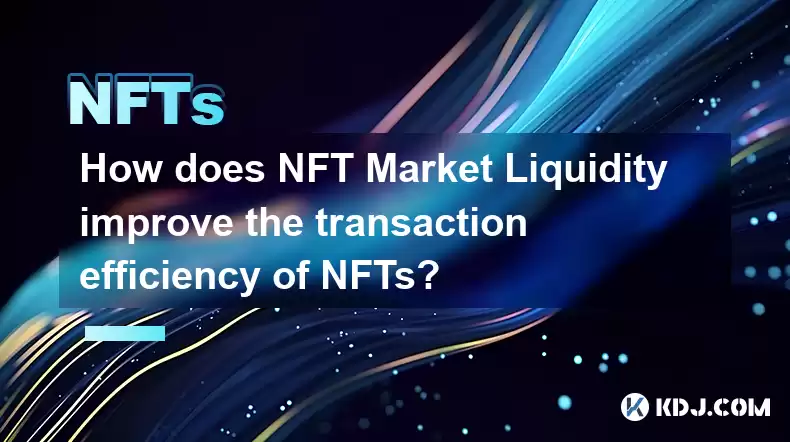
Key Points:
- Increased trading volume directly correlates with improved liquidity. Higher volume attracts more buyers and sellers, leading to faster transaction times.
- Decentralized exchanges (DEXs) and NFT marketplaces with advanced order book systems facilitate efficient trading.
- Fractionalization of NFTs allows for smaller investments and increased participation, boosting liquidity.
- Improved NFT metadata standards and discoverability tools enhance the visibility of NFTs, attracting more traders.
- The use of stablecoins and other cryptocurrencies minimizes price volatility and facilitates smoother transactions.
How Does NFT Market Liquidity Improve the Transaction Efficiency of NFTs?
The efficiency of NFT transactions hinges heavily on market liquidity. High liquidity means NFTs can be bought or sold quickly without significantly impacting their price. This is crucial for both buyers and sellers, ensuring smooth and timely transactions. Low liquidity, conversely, can lead to lengthy sales processes and potentially unfavorable prices. Several factors contribute to improved NFT market liquidity, thereby enhancing transaction efficiency.
One of the most significant factors influencing NFT liquidity is trading volume. A high volume of trades indicates a robust and active market. With many buyers and sellers constantly interacting, transactions can be executed swiftly. This high activity reduces the time it takes to find a counterparty for a trade, directly improving transaction efficiency. Conversely, low trading volume often results in longer waiting periods and potentially less favorable prices.
The platforms facilitating NFT trades play a crucial role in liquidity. Decentralized exchanges (DEXs) and NFT marketplaces offering sophisticated order book systems contribute significantly to efficient trading. These systems allow buyers and sellers to place orders at specific prices, creating a more liquid market. Advanced features like limit orders and stop-loss orders give traders more control and reduce the risk associated with price fluctuations, ultimately improving transaction efficiency.
Fractionalization is another innovative approach to boosting NFT liquidity. This involves dividing a single NFT into smaller, more affordable units, making it accessible to a wider range of investors. By lowering the barrier to entry, fractionalization increases the number of potential buyers and sellers, thereby increasing liquidity and accelerating transaction speeds. This democratization of ownership expands the market and improves overall efficiency.
Improved metadata standards and discoverability tools are essential for enhancing NFT market liquidity. Clear and consistent metadata makes it easier for buyers to find and evaluate NFTs, stimulating market activity. Advanced search functions and categorization tools help buyers quickly locate NFTs matching their criteria, streamlining the buying process. This increased discoverability directly translates to faster transactions and a more efficient market.
Minimizing price volatility is key to efficient NFT transactions. The use of stablecoins, cryptocurrencies pegged to fiat currencies, can help mitigate price fluctuations. Transactions conducted in stablecoins reduce the uncertainty associated with volatile crypto prices, making it easier to assess the value of an NFT and complete transactions quickly. This stability contributes significantly to a more efficient and predictable trading environment.
The integration of various payment methods also impacts liquidity. Offering multiple options beyond just the native cryptocurrency of the marketplace can attract a broader range of buyers and sellers, leading to greater trading volume and improved transaction efficiency. This increased accessibility broadens the market and caters to diverse user preferences.
Frequently Asked Questions:
Q: How does increased trading volume improve NFT transaction efficiency?
A: Higher trading volume means more buyers and sellers are active in the market. This makes it easier and faster to find a counterparty for a trade, leading to quicker transaction times.
Q: What role do decentralized exchanges (DEXs) play in improving NFT liquidity?
A: DEXs with advanced order book systems allow for more efficient price discovery and matching of buyers and sellers, improving liquidity and transaction speeds.
Q: How does NFT fractionalization contribute to increased liquidity?
A: Fractionalization makes NFTs more accessible by allowing smaller investments. This increased participation leads to higher trading volume and improved liquidity.
Q: How do better NFT metadata standards improve transaction efficiency?
A: Clear metadata enhances discoverability, making it easier for buyers to find suitable NFTs. This leads to faster transactions and a more efficient market.
Q: What is the importance of stablecoins in improving NFT market liquidity?
A: Stablecoins minimize price volatility, reducing uncertainty and facilitating faster, smoother transactions. This predictability improves overall market efficiency.
Q: How do different payment options impact NFT transaction efficiency?
A: Offering various payment options beyond the platform's native cryptocurrency broadens the buyer base, increasing trading volume and improving transaction speed.
Q: Can improving NFT liquidity solve all problems in NFT trading?
A: While improved liquidity significantly enhances transaction efficiency, other factors like regulatory uncertainty and market manipulation can still affect the NFT market. Liquidity is a crucial component but not the sole determinant of a healthy ecosystem.
Q: What are some examples of marketplaces that prioritize liquidity?
A: Several marketplaces are actively working on improving liquidity, often through partnerships with DEXs and the implementation of features like fractionalization and improved search functionality. Specific examples vary and are constantly evolving, so researching current market leaders is recommended.
Q: How can I, as an individual, contribute to better NFT market liquidity?
A: Actively participating in the market by buying and selling NFTs, utilizing efficient trading platforms, and spreading awareness of the benefits of fractionalization can all contribute to improved overall liquidity.
Disclaimer:info@kdj.com
The information provided is not trading advice. kdj.com does not assume any responsibility for any investments made based on the information provided in this article. Cryptocurrencies are highly volatile and it is highly recommended that you invest with caution after thorough research!
If you believe that the content used on this website infringes your copyright, please contact us immediately (info@kdj.com) and we will delete it promptly.
- Cryptocurrency, Altcoins, and Profit Potential: Navigating the Wild West
- 2025-08-04 14:50:11
- Blue Gold & Crypto: Investing Disruption in Precious Metals
- 2025-08-04 14:30:11
- Japan, Metaplanet, and Bitcoin Acquisition: A New Era of Corporate Treasury?
- 2025-08-04 14:30:11
- Coinbase's Buy Rating & Bitcoin's Bold Future: A Canaccord Genuity Perspective
- 2025-08-04 14:50:11
- Coinbase's Buy Rating Maintained by Rosenblatt Securities: A Deep Dive
- 2025-08-04 14:55:11
- Cryptos, Strategic Choices, High Returns: Navigating the Meme Coin Mania
- 2025-08-04 14:55:11
Related knowledge
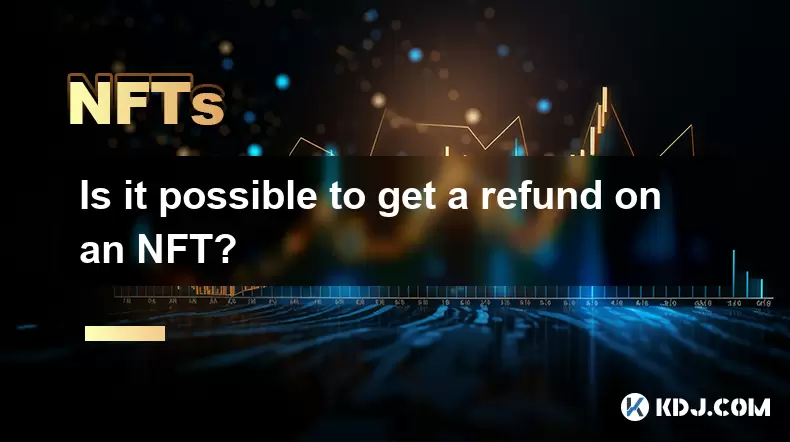
Is it possible to get a refund on an NFT?
Jul 21,2025 at 08:35pm
Understanding NFT Transactions and RefundsWhen you purchase an NFT (Non-Fungible Token), the transaction is typically recorded on a blockchain, making...
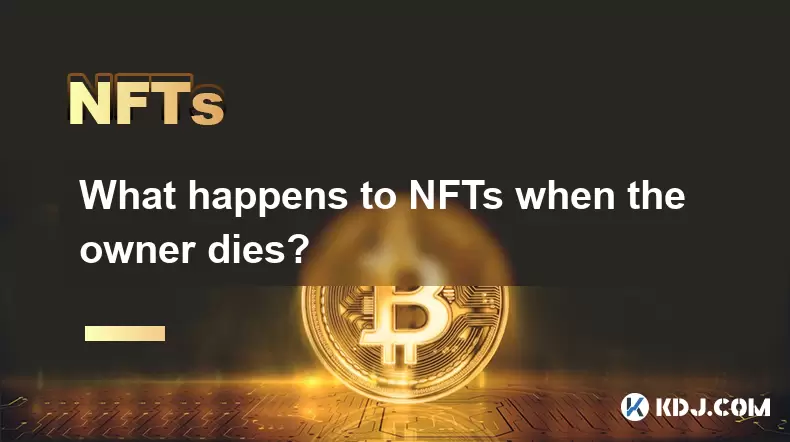
What happens to NFTs when the owner dies?
Jul 22,2025 at 02:43pm
Legal Ownership and Digital AssetsWhen an individual owns NFTs, the question of what happens to these assets upon their death is a pressing one. NFTs ...
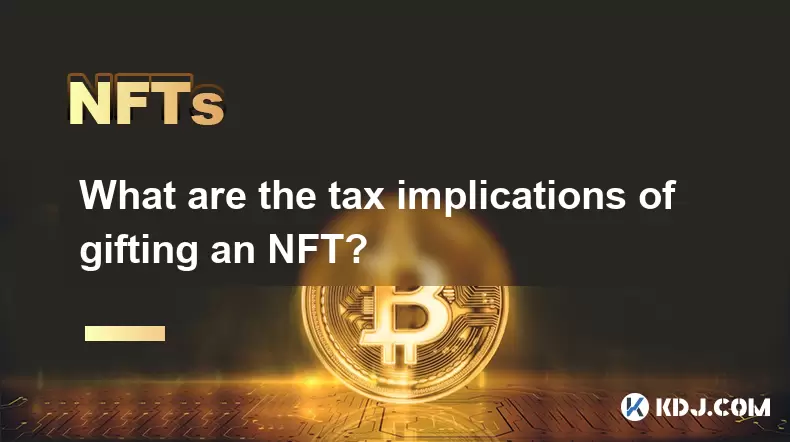
What are the tax implications of gifting an NFT?
Jul 19,2025 at 04:21am
Understanding the Basics of NFT GiftingGifting a Non-Fungible Token (NFT) involves transferring ownership from one individual to another without recei...
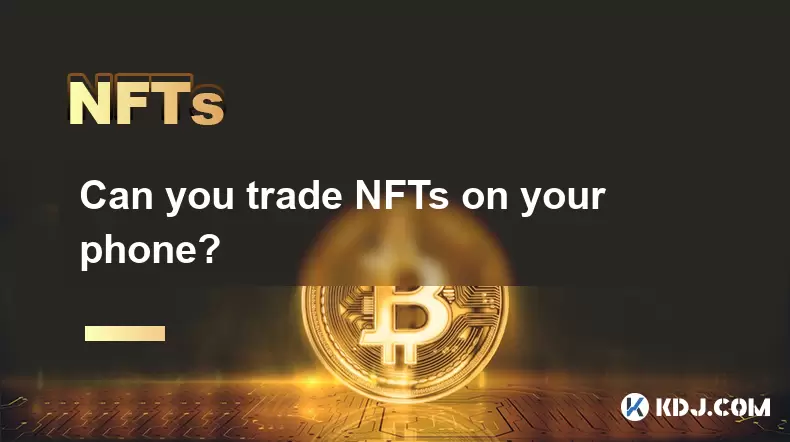
Can you trade NFTs on your phone?
Jul 18,2025 at 04:29am
Trading NFTs on Mobile DevicesYes, you can trade NFTs on your phone, and the process has become increasingly streamlined thanks to a variety of mobile...
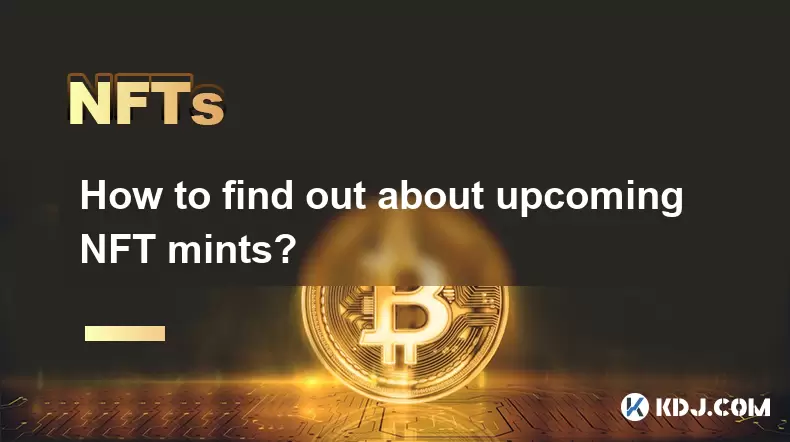
How to find out about upcoming NFT mints?
Jul 18,2025 at 11:50am
Exploring NFT Minting OpportunitiesUnderstanding the landscape of upcoming NFT mints is crucial for collectors, investors, and creators who wish to st...
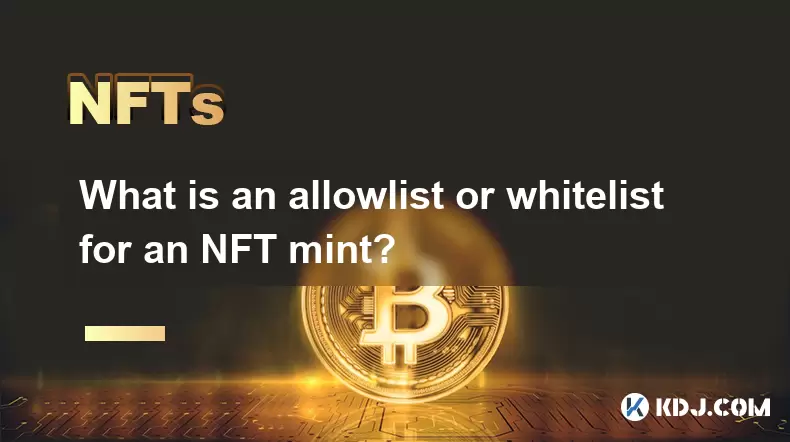
What is an allowlist or whitelist for an NFT mint?
Jul 20,2025 at 07:14pm
Understanding the Concept of an Allowlist for NFT MintingAn allowlist, also commonly referred to as a whitelist, is a mechanism used in the NFT mintin...

Is it possible to get a refund on an NFT?
Jul 21,2025 at 08:35pm
Understanding NFT Transactions and RefundsWhen you purchase an NFT (Non-Fungible Token), the transaction is typically recorded on a blockchain, making...

What happens to NFTs when the owner dies?
Jul 22,2025 at 02:43pm
Legal Ownership and Digital AssetsWhen an individual owns NFTs, the question of what happens to these assets upon their death is a pressing one. NFTs ...

What are the tax implications of gifting an NFT?
Jul 19,2025 at 04:21am
Understanding the Basics of NFT GiftingGifting a Non-Fungible Token (NFT) involves transferring ownership from one individual to another without recei...

Can you trade NFTs on your phone?
Jul 18,2025 at 04:29am
Trading NFTs on Mobile DevicesYes, you can trade NFTs on your phone, and the process has become increasingly streamlined thanks to a variety of mobile...

How to find out about upcoming NFT mints?
Jul 18,2025 at 11:50am
Exploring NFT Minting OpportunitiesUnderstanding the landscape of upcoming NFT mints is crucial for collectors, investors, and creators who wish to st...

What is an allowlist or whitelist for an NFT mint?
Jul 20,2025 at 07:14pm
Understanding the Concept of an Allowlist for NFT MintingAn allowlist, also commonly referred to as a whitelist, is a mechanism used in the NFT mintin...
See all articles

























































































